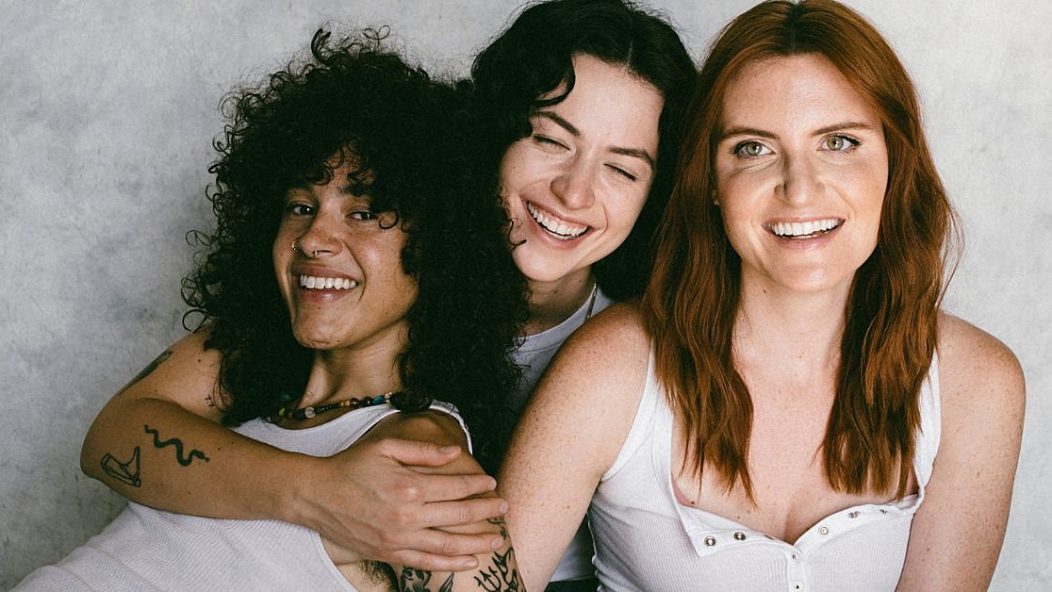
How MUNA are embracing queer joy on their new self-titled album
This month, MUNA made their cover debut with Alternative Press. The band appear alongside artists such as Alexisonfire, Bartees Strange, Soccer Mommy and Joyce Manor.
In the cover story, MUNA walk readers through the creation of their new self-titled album. The trio also aren’t shy about acknowledging their predecessors Tegan And Sara. “I don’t want to use cheesy words like trailblazers, but they are,” Katie Gavin enthuses. The vocalist also points out how far they’ve come since putting out their 2017 debut album About U. Whereas that record featured broader, gender-neutral lyrics, MUNA have reached a point where they embrace their identity wholeheartedly.
Read more: MUNA are entering a new era of radical vulnerability
Read an excerpt from the cover story, written by Marianne Eloise, below.
Queer joy, particularly in music, is less rare than it used to be. chloe moriondo, Snail Mail, Hayley Kiyoko, Lil Nas X, Years & Years… we have a wealth of artists who are out, proud and having a whole lot of fun with it. Still, MUNA want to pay tribute to the women who came before — the women who, for a while, were all we had.
“We’re standing on their shoulders. Tegan And Sara have been so supportive of us from the very beginning, which is so sweet,” Maskin says. Gavin adds: “It’s always been unbelievable to me because they’re legends. I don’t want to use cheesy words like trailblazers, but they are.” It’s the joy of Tegan And Sara, as people if not always in their music, that resonates with MUNA: “Something that I liked about them back in the day when I was a closeted queer and feeling so seen was that they are so fucking funny. Even though the music was sad, their personas and the way that they were at shows was so delightful,” McPherson says.
When MUNA formed, we were still living with that dearth of queer artists. While the band members were always out, About U was a little less specific. “On our first record, everything was gender-neutral,” Gavin says. “It was always in the second person, which was a tactic I learned from Tegan And Sara.”
There’s none of that shyness on MUNA: “I think we’re ready for it now. When I write a song and I’m writing lyrics, the people that I love are women and nonbinary people, and if that’s who I’m singing about, then that’s who I’m singing about. It wasn’t necessarily a conscious choice with this record.” That unashamed embrace of who they are is resonating further than they expected. “We can count cis gay men as part of the fanbase that listens to our music. If they can vibe, everybody can vibe,” Maskin adds.
You can read the full cover story in issue #407, available here.










